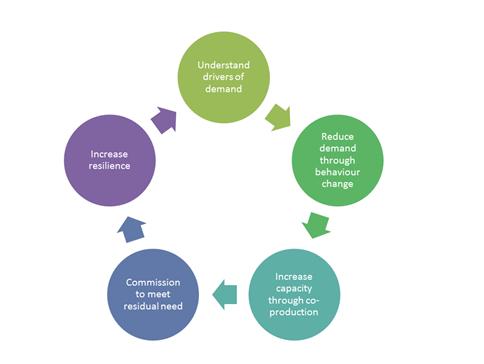Catherine Staite
Barry Quirk’s excellent article in the Local Government Chronicle highlighted the often overlooked role of local government as the guardian of public ethics.
Public ethics happen in the space where the state, in all its manifestations, civil society and the individual meet. That space is highly contested and consequently difficult to navigate. We need a very good moral compass to find the right course through all the arguments, often fuelled by ignorance and blurred by misunderstanding, about who takes precedence – the majority or the minority? As we attempt to protect minorities are we inadvertently discriminating against them by failing to hold them to account?
There are no easy answers but examples like the child sexual exploitation in Rotherham highlight what happens when local government and its partners mislay their collective moral compass and lose their way.
What causes such failures? The fragmented nature of local government is both a blessing and a curse. Councils are so different: their geographies, challenges, politics, culture and finances vary much more than the many over-simplified, generic journalistic, references to ‘town halls’ would suggest. The blessings stem from local knowledge, closeness to communities and relative agility – at least compared to national bodies. The curses lie in cultural isolation.
There is a lot of collaboration, integration and sharing of best practice and new ideas across the local government family but there is also quite a lot of inward looking, ‘not invented here syndrome’ as well. It is in that self-referential, parochial, isolation that the moral compass can be lost without anyone noticing. That isn’t a problem which is confined to local government – the ‘institutional racism’ of the Metropolitan Police and the unspeakable cruelty of Mid Staffordshire demonstrate how the lack of a moral compass can lead to the normalisation of moral and ethical failure.
So how do organizations maintain their moral compasses in good working order? It’s far too easy to place our faith in that mythical answer to all our problems: ‘leadership’. All good leaders know that they are nothing without good followers. Old fashioned heroic leadership required unquestioning followers and that is a recipe for disaster. The most vulnerable leader is the one whom to whom nobody dare say ‘you are wrong’. Good followers are not sheep, they are engaged and challenging – not least because they know so much about what is good and bad in their organisation. Good leaders and good organisations treasure and reward good followers.
Is external scrutiny the answer? The Audit Commission became a bit of a bête noir for local government before its demise but some of that reaction was generated by it doing its job well and challenging bad practice and groupthink. It will certainly be re-invented at some form in the future because of a growing recognition of the need for positive and supportive external challenge. The Local Government Association makes a good fist of sharing good practice and its peer reviews offer some gentle challenge to those who invite it but it is a political organization and it’s not its job to be both advocate and enforcer.
One of the consequences of the Scottish Referendum is a reinvigorated debate about devolution in England. As you’d expect, this has quickly resolved itself into discussions about structures and institutions but those discussion are missing the point. Successful devolution requires the explicit transfer of both powers and duties and one of those duties is responsibility for the moral compass. The need for effective local guardians of public ethics has never been greater.
Catherine Staite is the Director of INLOGOV. She provides consultancy and facilitation to local authorities and their partners, on a wide range of issues including on improving outcomes, efficiency, partnership working, strategic planning and organisational development, including integration of services and functions.


